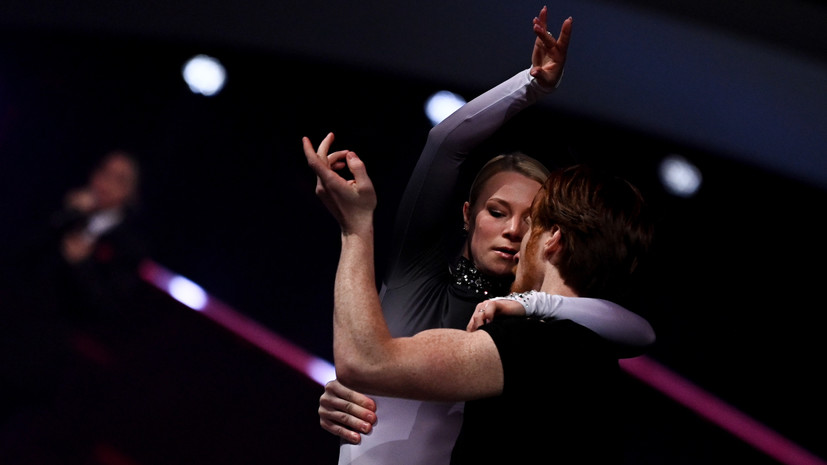On Saturday, the first of the stages of the Russian Grand Prix starts at Megasport, and you can safely say the phrase: “Finally, we have waited for this.”
The full list of participants was announced only last Monday, before that the Moscow tournament was announced by listing the most high-profile names, and this seemed to imply that it was these skaters who should demonstrate the most interesting performances to the public.
It seems that there is no need to argue: Kamila Valieva and Mikhail Kolyada are in single skating, as well as sports duets Anastasia Mishina and Alexander Gallyamov, Evgenia Tarasova and Vladimir Morozov really should become the main newsmakers of the event, however, there is a “but” here: the Olympic season kicks out the strength of the leaders is so strong that the next year passes for them, as it were, by inertia and is always in some decline.
Plus, the lack of the opportunity to compete in international competitions makes such an integral part of sports a very conditional thing, as a result: what difference does it make how many points the winner scores if these points, like the points earned, do not bring those titles for which the athlete is already used to fighting?
The paradox is that all of the above applies to a very small group of skaters.
And it is not at all a fact that it is they who will determine the weather in the Russian sports season closed from the world.
Therefore, the question is now coming to the forefront: what will happen in the camp of those who are usually called the second echelon, and whose names the general public still does not really know?
The Spanish figure skater Sarah Hurtado, who has been dancing on ice with her Russian partner Kirill Khalyavin for many years, admitted not so long ago in an interview: they say, it’s sad to understand that you did everything in your power to get to the Olympics, but this was not enough .
“Games are too exciting a spectacle to ignore.
It does not lose its beauty and power from the fact that I am not there.
After all, the best athletes from all over the world always perform at the main start of the four-year period.
Of course, I wanted to be there, on the ice…,” added the athlete.
To paraphrase what has been said, it is quite possible to say that at least three types of programs in Russia now bring together the beauty and power of world figure skating, as well as the toughest competition.
And it is logical to assume that some of the foreign skaters would very much like to be in this company.
I will not argue that this is exactly the case, but this does not negate what has been said above.
Therefore, in fact, the idea was born to create a certain summary rating of performances in the first half of the season.
It will not be difficult to compare skaters in this aspect: all six Russian stages will be held exactly at the same time as the “big” Grand Prix tournaments held by the International Skating Union without the participation of Russians.
Another question is that it would not be too legitimate to build a rating purely mathematically, comparing the results of the winners on both sides of the border.
And even more so, it makes no sense to take the official ISU rating as a basis, where the performances of one or another athlete or couple over the past three seasons are taken into account: many representatives of the new wave of skaters simply do not have any significant rating.
And even a character as bright on a global scale as Mikhail Kolyada, according to the results of last season, occupied only the 24th line in the official international ranking table.
True, the 29th ranking place of the two-time Olympic champion Yuzuru Hanyu looks even more absurd: the fact that the Japanese almost did not compete in competitions that bring rating points does not psychologically reconcile the fans with the fact that the most charismatic skater of the last two decades is not among the strongest.
It turns out that any rating, no matter how carefully it is built from the standpoint of numbers, can be inherently absolutely biased and unable to reflect the real balance of power.
What then should be taken into account?
The figures, of course, have not been canceled, but they are secondary.
Especially, as already mentioned, this applies to the leaders of the Russian Grand Prix: neither the total points nor the places taken give the athletes the main thing - access to the real top level in terms of subsequent tournaments.
Personally, I find the most interesting things that at first glance can not be measured.
These can be programs and costumes, coaching finds and overcoming oneself, and indeed any desire to jump above your head - that is, the very components that give the skater the opportunity to be remembered by the world even while in isolation - after all, we are not talking about a single season now , but about the entire Olympic four-year period.
And in one way or another, everyone is now isolated without exception: some from world skating, others from Russian.
And do not say offhand, whose losses are more significant here.

